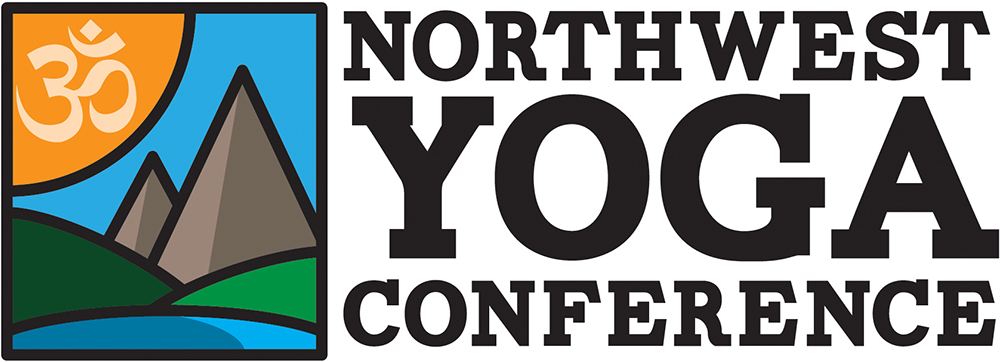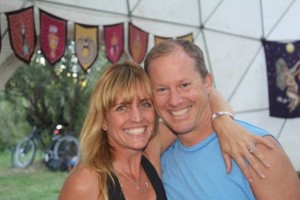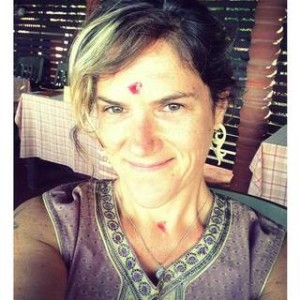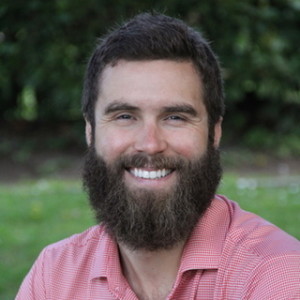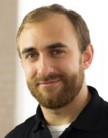by Jill Rivera Greene, Conference Blogger
“Building community is not optional if you want a thriving yoga business.” – Jill and Michael Knouse
When my kids were preschool age, they loved to watch “Bob the Builder.” In each animated episode, Bob and his friends serve their neighborhood through a variety of building and repair projects. The group’s rallying cry, “Can we fix it? Yes we can!” reinforces the show’s message that people do more and do better when they work together in community.
The same can certainly be said of yoga. Although we often practice alone, on our mats and meditation cushions, so much of our growth as yogis takes place in communities—in group classes and trainings, on retreats and pilgrimages, or through social action inspired by yogic principles.
So we asked some of our presenters: What makes a strong yoga community?
Jill and Michael Knouse are the dynamic duo of community building, having proven their considerable skills in the worlds of both business and yoga. They write:
“‘Building community’ means cultivating a place where people can feel safe, seen and valued. It’s all about creating an environment that brings people together in a way that is unique and valuable to them. When people experience YOUR community, many of them will feel as if it’s their second home—the place where they finally get to let out a deep breath that they had no idea they were holding.”
The Knouses say that building community is “smart marketing”:
“When you create a place where people feel they’ve found their tribe, they will join you in your classes, workshops, retreats, and trainings.” (And, they point out, they’ll tell their friends.) “Having 100 really passionate people in your community is exponentially more effective at spreading a message than marketing to the masses.”
The Knouses will be sharing the secrets of their success during their Sunday morning workshop, “How to Build Your Own Thriving Yoga Community.”
But they’re not the only presenters with a wealth of knowledge on the subject. Presenter Molly Lannon Kenny is the founder and spiritual director of The Samarya Center, a nonprofit service and training organization dedicated to individual transformation and radical social change since 2001.
She shared what she considers to be key elements of a successful community:
“You have to have somebody who is the fire-keeper, somebody who is at the center (not necessarily the top), who’s keeping the community alive. … You also have to define what your community is based around. Is it your studio, a value system, a person? Finally, you need some kind of community agreement, so that people really feel accountable to the community, and have ample opportunities to be involved and share ownership of the community.”
Kevin Graybill adds one more to this list: Communication.
“If you take a close examination of any communities of the past or present,” he writes, “they make meaning together, and share a collective understanding of some sort. Neither of these things can be done without communication.”
Not all forms of communication are equally conducive, though.
“Some styles of conversation, like debate for instance, intend to fragment and pull groups apart via the egoistic act of making someone right, and making someone wrong. Dialogue is on the other end of the spectrum, and can be described as a conversation with a center, not sides. The goal of dialogue is for everyone to contribute to this center, with the hope of creating and tapping into a unique collective consciousness.”
Graybill is offering a unique opportunity to participate in a specific type of structured dialogue, Yoga Circles, on both weekend afternoons during the conference. These circles offer an experience of authentic dialogue, in which participants learn to be more mindful in conversation, increase their compassion through patient listening, and realize the interconnectedness between us all.
Finally, Andrew Tanner of Yoga Alliance suggests that building community doesn’t have to be complicated:
“At Yoga Alliance, ‘community’ begins with the firm belief … that yoga in all its diverse forms is a major force for good on the planet; and it deserves to be spread as widely as possible.” He adds, “A yoga community begins every time a yogi shares the yoga knowledge or technique that brought them health, happiness, or inner peace with another.”
Tanner will talk about some of the ways that Yoga Alliance helps nurture these communities during his workshops, “The Future of Yoga, Reading the Data Tea Leaves” and “Let Yoga Alliance Work for You!”
Whether you are looking to find your tribe, or hoping to attract more like-minded people to grow your yoga business, the Northwest Yoga Conference is a great place to start.
As Lannon Kenny says,
“This conference is a tremendous opportunity. There’s nothing else like it in the Pacific Northwest. Community doesn’t happen by itself. If you want community, you have to show up!”
